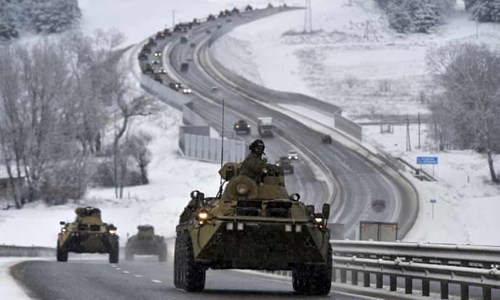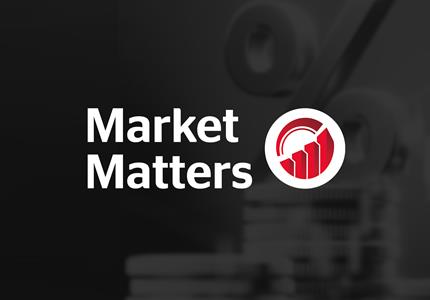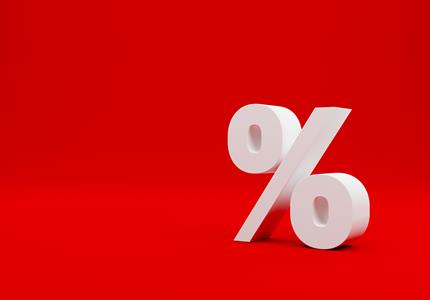

Boscher's Big Picture - Russia-Ukraine crisis adds to the challenging global macro environment
Chief investment officer Kevin Boscher reflects on the market’s position amidst the ongoing Russia-Ukraine crisis.
Financial markets have had a difficult start to the year and both equites and bonds have fallen, with significant declines in some areas, including growth stocks, such as technology and healthcare, and longer-dated government bonds.
This is largely due to the challenging macro background, whereby the global economy, monetary and fiscal policy and markets are all in transition, from the recovery boom phase of the past 12-18 months toward their pre-pandemic and secular steady-state growth. Markets usually struggle around inflection points, and in this instance investors are concerned about a number of potential threats, most notably high and sticky inflation, a more aggressive Fed (and other central banks), rising interest rates and bond yields and slowing economic activity.
In addition, valuations seem to matter more in a rising rate environment and whilst it’s true that many stocks and indices have already been through deep corrections, certain sectors and US stocks in particular remain relatively expensive.
The Russia-Ukraine crisis poses another challenge for investors and policymakers as they weigh the upside risks to inflation against the downside risks to growth.

At this point, there remains considerable uncertainty about how this situation will develop and whilst we are hopeful that a resolution can be found without the need for all-out aggression today’s news makes that less likely. If a prolonged conflict does result, we would see a strong response from NATO and its allies, which would include economic and other sanctions.
The biggest economic impact from this would likely be higher commodity prices – energy in particular, since Russia is a major oil and gas exporter. This would add to the upward pressure on global inflation and present a real dilemma for central banks. Ordinarily, they would not raise interest rates in response to a relative and perceived temporary price shock. This has certainly been the case historically, even when energy prices have risen, such as the Suez Canal and Cuban missile crises.
However, there have been exceptions, most notably in the 1970s when the Yom Kippur war and OPEC oil embargo resulted in an extended period of high inflation. Arguably, economic conditions today are more similar to that period since inflation has already risen materially and labour markets are tight, especially in the US.
However, central banks (like ourselves) continue to believe that the current inflationary pressures are largely cyclical in nature and should ease as the supply/demand disruption dissipates and the base effects from the spike in energy prices over the past year or so drop off. Oil and gas prices would have to spike again from these levels to counter the impact of the base effect move over the reminder of this year and beyond. In addition, and as I have written about previously, central banks are acutely aware of the powerful secular disinflationary forces at play and the need to keep financing costs low in an era of high and rising debt levels. Also, higher energy prices act as a form of tax and squeeze real incomes, which weaken consumption and economic growth. Real incomes in many developed economies are already declining and any further squeeze could tip the balance towards an increased risk of recession.

For now, the risks posed by the crisis to both inflation and growth seem finely balanced. The adverse effects on real economic activity in advanced economies seems modest, partly because trade ties with Russia are relatively small and the impact on financial markets have so far been limited. However, a tipping point could result should the conflict materially escalate and become serious enough to disrupt economic activity, push energy prices materially higher or negatively affect confidence or markets.
Central banks are therefore likely to monitor events in Ukraine closely, but wait for more clarity on the developing situation before they factor any likely impact into their policy actions. Governments in major energy importing economies will also be watching with interest as the consumer may have to be protected from any further increase in prices in order to maintain consumption and prevent a major slowdown in activity.
On balance, we think it is unlikely that this crisis will have a material impact on either the global economic outlook or central bank policy unless events escalate materially. In addition, markets have already discounted a lot of bad news and have priced in a significant tightening of policy. However, as outlined above, the global economic background is already challenging, and markets are likely to remain difficult and volatile for a while longer with the Ukraine situation adding to investor angst.
In our view, the most important factors influencing markets are the outlook for longer-term inflation and the implications for central bank policy. We remain of the view that inflationary pressures should gradually ease over the next few months and that the Fed will step back from its more hawkish stance, supporting the growth outlook and enabling interest rate expectations and bond yields to fall from current levels.

This would be very positive for equities, especially if it coincided with additional policy easing from China, a weaker Dollar and more nations learning to “live with Covid”. However, nobody can be certain that inflation will not become a bigger long-term issue and prove to be more problematic for both growth and policy makers.
Hence it continues to make sense to adopt a barbell investment strategy as we navigate through the uncertainty, with an appropriate balance between value, growth, cyclical and defensive equities with hedges in place to protect against the prospect of both higher inflation and weaker growth. We have already made a number of changes to our portfolios over recent months with this in mind and are ready to move more defensively should the outlook deteriorate materially from here. Longer-term, the investment outlook remains favourable, and we will be looking for opportunities to add to our preferred holdings over the next few months.
As always, if you have any concerns or questions, please do not hesitate to contact us.


